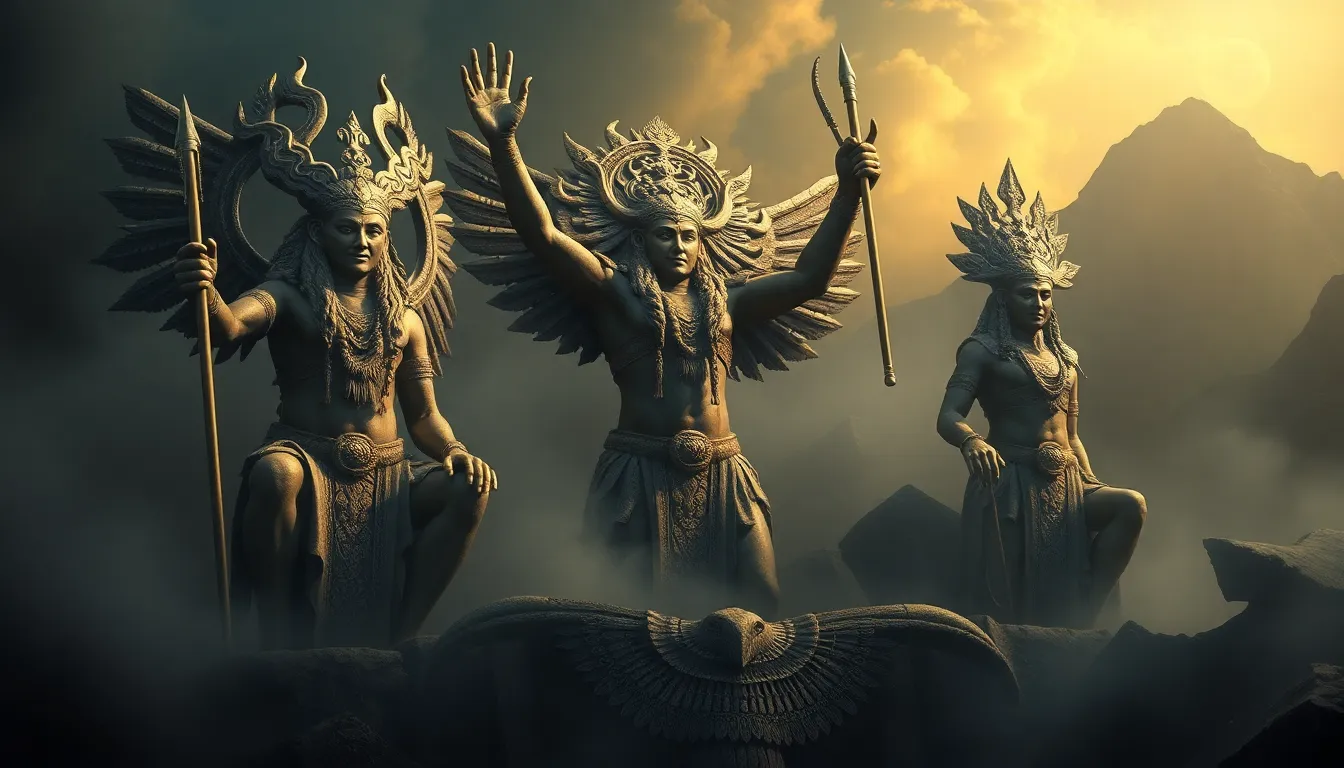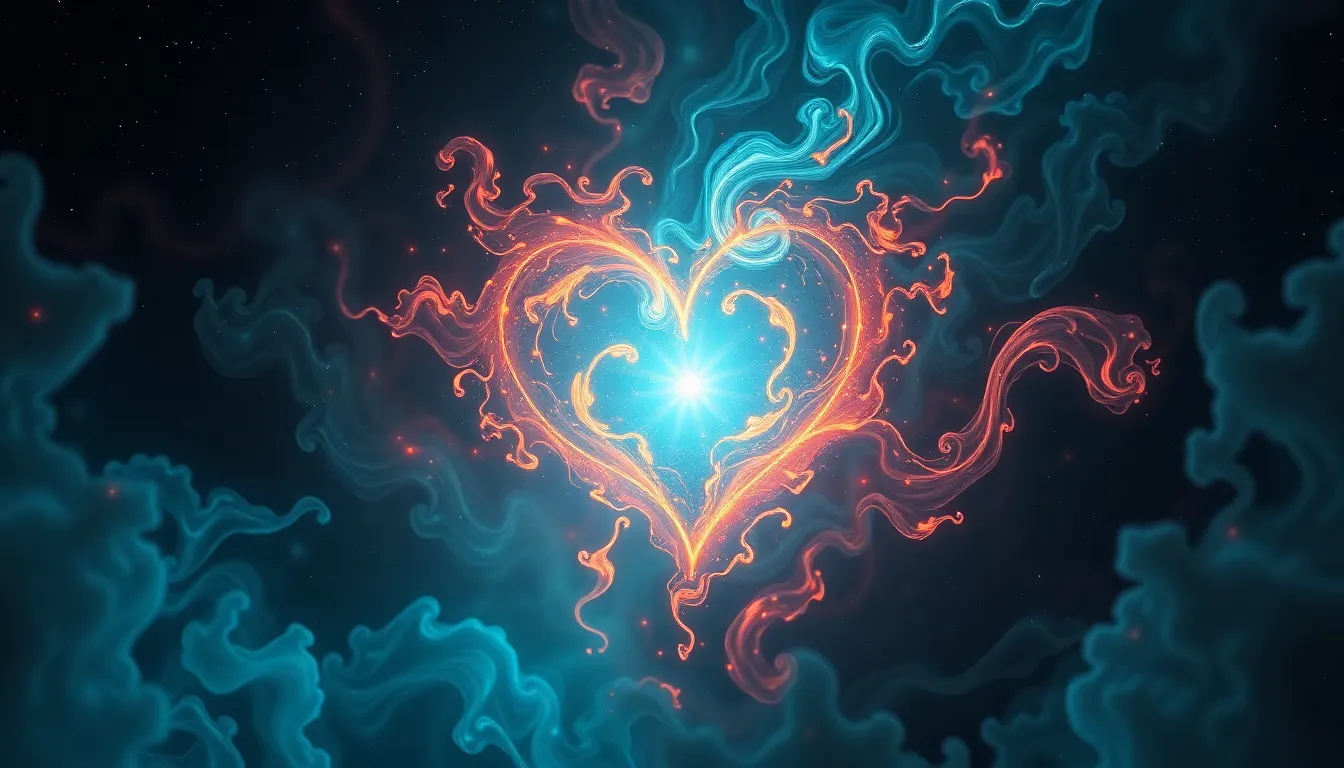The Most Influential Ancient Deities in World History
I. Introduction
Deities, or gods and goddesses, have played a pivotal role in ancient societies, serving as the embodiment of natural forces, societal values, and cultural beliefs. These divine beings were often worshiped in various forms, from grand temples to simple rituals, reflecting the intricate relationship between humanity and the divine. Understanding ancient deities is essential for grasping the cultural heritage of civilizations, as they reveal insights into the values, fears, and aspirations of different societies.
This article explores some of the most influential ancient deities across various civilizations, highlighting their significance in shaping religious beliefs, cultural practices, and historical narratives.
II. Egyptian Pantheon: The Power of Ra and Osiris
Ancient Egyptian religion was deeply intertwined with the daily lives of its people. The Egyptians worshiped a vast pantheon of gods and goddesses, each embodying different aspects of life and nature.
A. Ra: The Sun God and Creator of Life
Ra, the sun god, was one of the most important deities in ancient Egypt, symbolizing light, warmth, and growth.
- Symbolism and worship practices: Ra was often depicted with a falcon head and a sun disk, representing his power over the skies and life. Egyptians worshiped Ra through elaborate rituals, including daily offerings and festivals.
- Influence on Pharaohs and governance: Pharaohs were considered the earthly embodiment of Ra, ruling as divine leaders. This connection reinforced the pharaoh’s authority and justified their right to govern.
B. Osiris: God of the Afterlife
Osiris held a crucial place in the Egyptian belief system as the god of the afterlife, resurrection, and fertility.
- Myths and resurrection themes: Osiris’s narrative involves his murder by his brother Set and subsequent resurrection by his wife, Isis. This myth symbolized hope and renewal, embodying the cyclical nature of life and death.
- Impact on funerary practices and beliefs about the afterlife: Osiris’s association with resurrection led to elaborate burial practices aimed at ensuring safe passage to the afterlife, including mummification and tomb construction.
III. The Greek Gods: Zeus and Athena
Greek mythology has profoundly influenced Western culture, offering rich narratives that explore human nature, morality, and society.
A. Zeus: King of the Gods
Zeus, the ruler of Mount Olympus, represented authority, justice, and moral order.
- Authority, justice, and moral order: As the god of the sky, Zeus was seen as the enforcer of justice and the protector of laws, often intervening in human affairs to uphold morality.
- Influence on Roman mythology as Jupiter: Zeus’s legacy continued in Roman culture, where he was known as Jupiter, further entrenching his attributes in Western mythology.
B. Athena: Goddess of Wisdom and Warfare
Athena, the daughter of Zeus, embodied wisdom, courage, and strategic warfare, playing a significant role in Athenian society.
- Role in Athenian society and democracy: As the patron goddess of Athens, Athena was revered for her wisdom and was integral to the development of democracy and civic responsibility in the city-state.
- Legacy in art and architecture: The Parthenon, a temple dedicated to Athena, stands as a testament to her influence, showcasing the artistic and architectural achievements of ancient Greece.
IV. Hinduism: Vishnu, Shiva, and Devi
Hinduism is characterized by a diverse array of deities, each representing different aspects of life and the universe.
A. Vishnu: The Preserver
Vishnu is revered as the preserver of the universe, known for his divine interventions through various avatars.
- Avatars and their roles in mythological narratives: Vishnu’s ten avatars, including Rama and Krishna, illustrate his commitment to restoring cosmic order (dharma) in times of chaos.
- Influence on concepts of dharma and cosmic order: Vishnu emphasizes the importance of righteousness and moral duty, shaping Hindu ethics and societal norms.
B. Shiva: The Destroyer and Transformer
Shiva represents duality, embodying both destruction and creation.
- Duality of creation and destruction: As the destroyer, Shiva clears the old to make way for new life, symbolizing the cyclical nature of existence.
- Impact on philosophy and spirituality: Shiva’s complex nature has inspired various schools of thought in Hindu philosophy, particularly in concepts of meditation and inner transformation.
C. Devi: The Divine Feminine
Devi represents the goddess in Hinduism, encompassing various manifestations of the feminine divine.
- Representation of Shakti and empowerment: Devi embodies Shakti, the divine feminine energy, representing strength and power.
- Influence on gender roles in society: The worship of Devi has empowered women and highlighted their roles in both spiritual and societal contexts.
V. Mesopotamian Deities: Enlil and Ishtar
Mesopotamian religion was rich and complex, with a pantheon that reflected the diverse cultures of the region.
A. Enlil: God of Wind and Storms
Enlil was a major deity associated with air, wind, and storms, often regarded as the chief god of the Sumerian pantheon.
- Role in creation myths and city-states: Enlil was believed to have separated heaven from earth, playing a central role in the creation of humanity and the establishment of city-states.
- Influence on agricultural practices: As a god of storms, Enlil was crucial for agriculture, as rain was essential for crop growth, influencing the agricultural cycles of Mesopotamian societies.
B. Ishtar: Goddess of Love and War
Ishtar was a multifaceted goddess representing both love and war, embodying the complexities of human emotions and societal roles.
- Duality of her nature and its cultural implications: Ishtar’s duality reflects the balance of love and conflict, highlighting the interconnectedness of these aspects in human experience.
- Influence on literature and art: Ishtar’s stories and imagery have inspired countless works of art and literature, serving as a powerful symbol of femininity and strength.
VI. Indigenous Beliefs: The Role of Nature
Indigenous religions often emphasize the importance of nature and the environment, viewing deities as interconnected with the natural world.
- Nature as sacred: Many indigenous cultures see the earth, animals, and plants as sacred, with spirits residing in natural elements.
- Rituals and respect for the environment: Rituals often focus on maintaining harmony with nature, reflecting a deep understanding of ecological balance and sustainability.
- Influence on contemporary environmental movements: Indigenous beliefs continue to inspire modern environmentalism, underscoring the importance of respecting and protecting the earth.
VII. Conclusion
The study of ancient deities provides invaluable insights into the beliefs, values, and cultural heritage of civilizations throughout history. From the powerful gods of Egypt to the complex pantheon of Hinduism, each deity has shaped the societies that worshiped them, influencing everything from governance and ethics to art and philosophy. As we explore these ancient beliefs, we gain a deeper understanding of humanity’s quest for meaning and connection to the universe.



